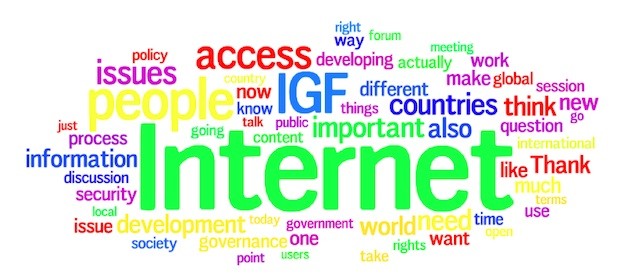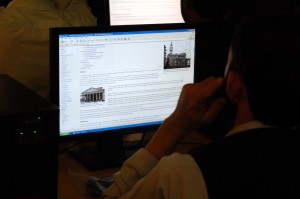September 10, 2014 - Comments Off on Turkey with its 29 Tweeters Still Behind the Bars Makes IGF ’14 Quite an Ironic Event
As we close off the Internet Governance Forum 2014 here at Istanbul and as I leave for Lahore, I can’t help but feel that this year's IGF kept on with its tradition of being a "talk-house" since past few years, creating no tangible actions. Sponsored by the United Nations, IGF hosted some 3,000 government, corporate, and civil society leaders and representatives making it a perfect venue for talking about difficult challenges, moving forward and making decisions. The event is organized every year to help shape the future of the Internet, however, it feels as if this reunion every year is drifting away from the actual problems concerning the people of the Internet especially in the authoritarian countries.
IGF certainly retains its singular prestigious place for highlighting challenges in an open-ended consultative process, enabling civil society and individuals voice their perspectives and concerns during the conference. However, it was felt throughout the civil society community that government officials weren’t keen on engaging in the dialogue discussing serious concerns about unfortunate events that have happened in their respective countries.
Being hosted in Turkey, it was an important place to discuss internet governance where government officials could have set a precedent for digital governance elsewhere. Turkey’s prosecution of 29 Twitter users has been a global example for the repressive regimes. Government prosecuted these tweeters who are being tried in Izmir facing up to three years in jail for posting critical tweets during last year’s protests. This case was charged by the Turkish officials as the one to “incite the public to break the law”. It is this stark hypocritical stance of the government to host one of the most important internet governance events in the country all the while censoring and harming freedom of speech online domestically.
To talk about repressive regimes’ ruthless behavior towards human rights activists and the hush by the government officials at the IGF, a group of civil society members and individuals hosted another conference during the IGF week. Titled as Internet Ungovernance Forum, the conference was organized to demand a free, secure, and open internet with fundamental freedoms, openness and net neutrality. Proving to be a vivid example of the increasing lack of empathy on the IGF forum, this group of Turkish activists weren't allowed to attend the conference. Ungovernance Forum's stakeholders believed that due to the representation of various governments that “don’t deserve” representation at a forum like IGF, ungovernance forum is designed to talk about the most important issues, create a space to raise voices of civil society members and common people, and then solve these problems while working towards a path for action.
Participants at this year's IGF also felt an evident gender gap especially during the opening ceremony. Freedom House presented this statement about the lack of gender equality at IGF 2014:
The 2014 IGF included numerous workshops on topics of human rights, including freedom of expression, gender, privacy, and access. Yet the value of this enterprise is undermined when governments can use the IGF to promote themselves, but civil society groups are forbidden by the ad hominem principle from criticizing them. Likewise, gender equality cannot genuinely be discussed when the vast majority of individuals at high-level meetings, delivering speeches, and participating on workshop panels are men. Access also cannot be addressed when remote participation fails to adequately provide two-way discussion from those who cannot attend in person. The IGF should include these voices not only to promote multistakeholderism and inclusion, but also to improve the quality of discussion and the prospects for solutions.
Active participation of civil society members and individuals in the Ungovernance Forum shows sheer disappointment that was felt in the fraternity having attended the IGF in Turkey which failed to acknowledge its own domestic internet governance challenges. While we may dream of creating better future for Internet and its citizens, it is of the utmost importance to talk about the most pressing issues when it comes to online freedom of dissidents and common people. Failure of the host country by ignoring hard questions put up by the journalists only undermines the importance of freedom of speech online. Unless repressive regimes aren’t ready to talk about their internal issues and lack of empathy towards their own citizens, it is only but ironic to see such states having an incredible part in the future of the Internet. God forbid how oppressive and censored that future is to be.



